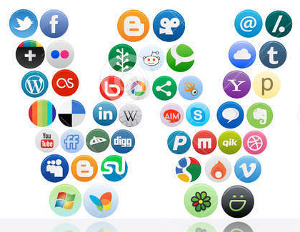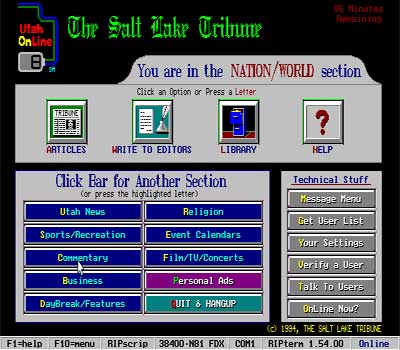 I come from a world where there is no web, only apps. The app I use the most is a social network in which there are discussions about different topics. I also often use an to see news, and another app to enter a multiuser role-playing game.
I come from a world where there is no web, only apps. The app I use the most is a social network in which there are discussions about different topics. I also often use an to see news, and another app to enter a multiuser role-playing game.
This world of apps is extremely flexible and varied. Each app can have its own interaction design, its own fonts and colors, and its own graphics. For instance, the last app I installed, the one from the bank, is really great.
In terms of functionality it has all the typical things, look at the balance, transfers and payments, etc. but visually, it is much nicer than other apps.
The app from the bank doesn’t only show text in different colors, but it also has some graphical elements, such as the bank’s logo. Also, the interaction is much easier because you can use the mouse instead of keying each command with a number. I imagine that over time the other apps also will be like this one, obviously. In the future there will be more and better apps, perhaps one app for every thing!
 The year is 1991, and while the geeks of the world enjoy of this world of “apps”, Tim Berners-Lee has already written the first web server and the first browser.
The year is 1991, and while the geeks of the world enjoy of this world of “apps”, Tim Berners-Lee has already written the first web server and the first browser.
Over the next 4 years, our world of “apps” will implode and disappear. Our world of “apps”, that were actually called BBS (Bulletin Board Systems), will be replaced by the web.
The black background will be replaced by a gray background, and then by a white background. Mono-spaced fonts will be replaced by proportionally-spaced ones. Modems of 9,600 bits per second will be replaced by ADSL modems and more. The world of online information systems will be completely different.
The BBS of the early 1990s were, in some sense, much more than the web, and also, much less than the web.
The BBS were much more than the web because behind each BBS there was a person or organization that was clearly identifiable (by a phone number!), including a system operator (sysop) who usually would give his/her real name. Also, connecting to a BBS was really “entering” a new place: the BBS was able to completely take over a part of your screen and design an entirely new interactive experience there. To “enter” a BBS could be a much more engaging experience than “visiting” a web site.
The BBS were much less than the web because if a BBS wanted to reference information on another BBS, they had to give you a phone number and a series of instructions (call number X, then chose option 3, then 1, then search for “user manual”). There was no uniform way of referring to an information resource, and there were no universal search engines indexing all of the information that was available. It wasn’t easy to interact with more than one BBS at the same time. Also, even when there were some free tools, to create a BBS was a project that could only be undertaken by a company or a really serious geek.
 The BBS world allows us to imagine how the world would be if the web were to be replaced by apps, a world that has been announced countless times in the last years, and in every possible way. To me, this speculation on itself is not a problem, the death of a technology is usually announced hundreds of times, some technologies are notoriously resilient (e.g. the radio), and in the end, their death, when it arrives, is seldom because of the anticipated reasons.
The BBS world allows us to imagine how the world would be if the web were to be replaced by apps, a world that has been announced countless times in the last years, and in every possible way. To me, this speculation on itself is not a problem, the death of a technology is usually announced hundreds of times, some technologies are notoriously resilient (e.g. the radio), and in the end, their death, when it arrives, is seldom because of the anticipated reasons.
The problem of the conversation about “the web is dead, long live to the apps” is, I think, that the levity with which we analyze a possible post-web world shows that we are not even paying attention to the name of what we are analyzing: the web. A web of information in which anyone can add a new thread and connect it to the rest of it, with a simple link. A world of apps, no matter how colorful, interactive, and animated, would be a huge step back.
We know what it means to have higher entry barriers for those who want to offer online information, more difficulties to locate information, and more fragmentation of the user experience. They were called BBS, and we left them behind more than 20 years ago.